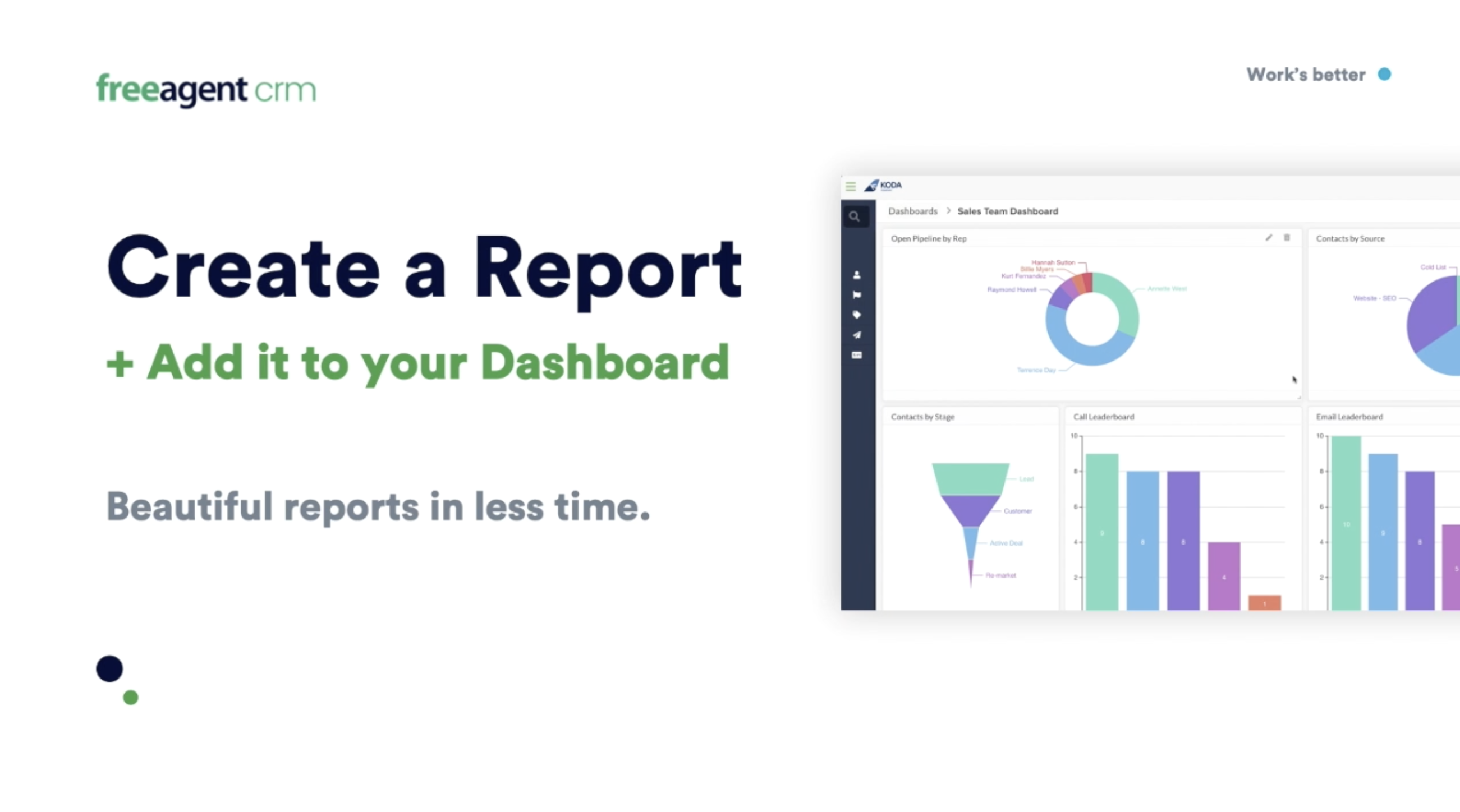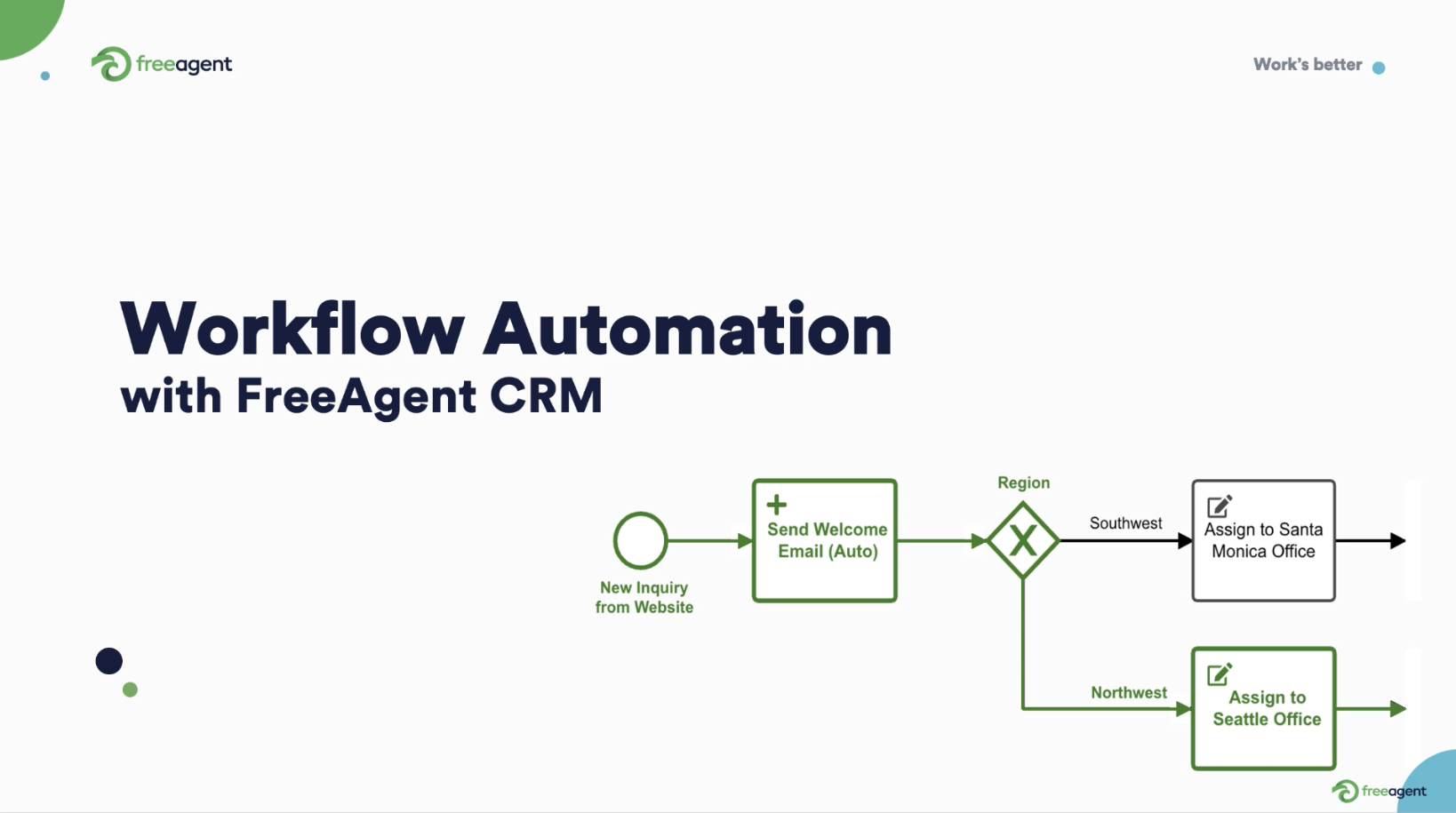In today’s competitive work environment, CRM (customer relationship management) is no longer a “nice-to-have” option, it is a critical business tool.
In fact, nine out of ten businesses with more than 11 employees use one (DemandSage).
That means to gain an edge, you don’t just need a CRM — you need to know how to use it.
Your CRM needs to be more than a cloud-based customer index. It needs to be a process-optimizing, efficiency-driving machine.
With CRM automation, it can be.
In this article, we will take a closer look at CRM automation and explore how you can use it to simplify marketing campaign performance tracking.
For more on how to use CRM automation to improve all your marketing processes, check out our article, Improve Marketing Success with CRM Automation.
What is CRM automation?
CRM automation is a broad term that encapsulates a wide range of functionalities and features that automate repetitive and redundant tasks. Some examples of common CRM automation features include:
- Automated data management- A CRM can automatically collect, distribute, and store data from various sources, such as:
- Emails
- Web forms
- Social media
- Integrated software tools
- Automated communication management- A CRM enables businesses to automate communications through various channels like email and SMS.
Communications can be sent based on predefined triggers or actions, and you can personalize the messaging and channel according to the needs and preferences of the recipient.
- Automated reporting and analytics- A CRM allows businesses to measure and analyze performance in real-time.
Dashboards can be automatically updated to reflect every conversion, win, stage change, and milestone.
Reports can be automatically generated based on up-to-date data and metrics.
Your pipeline can be automatically updated with every new opportunity.
- Automated notifications and reminders- Automated alerts can be set up to keep employees informed about deal/stage changes, upcoming tasks, handoffs, and deadlines.
The benefits of CRM automation
CRM automation provides many different benefits across many different roles and departments. Some broadly applicable examples include:
- Enhanced productivity- CRM automation all but eliminates manual data entry and other repetitive tasks. This helps your teams focus on high-value activities that drive results.
- Streamlined operations- CRM automation can help ensure that all your best practices are followed and that nothing falls through the cracks. This leads to better experiences for your customers and better results for your business.
- Data-driven decision-making- CRM automation provides you with data-driven insights that can inform business strategy and process refinement.
While these examples can give you a general idea of how CRM automation can help your business, we need to examine specific work processes to fully understand the impact these powerful CRM tools can have.
Let’s take a deep dive into the ways CRM automation tools can improve your marketing processes.


CRM automation for marketing: Tracking marketing campaign performance
Tracking marketing campaign performance enables you to understand the effectiveness of your marketing efforts and make more informed decisions about resource allocation, customer segmentation, and campaign targeting.
- Attribution- A CRM automatically captures all your marketing campaign data and can turn that data into reports that can help you understand which channels, messages, and interactions contributed most to lead conversions.
This insight can help inform more effective and efficient resource allocation as well as ensure performance rewards are properly distributed.
- Segmentation analysis- CRM automation enables you to segment your audience based on various attributes.
By tracking campaign performance within each segment, you can refine your targeting and messaging strategies, identify areas for expansion and growth, and better forecast future campaign outcomes.
- Closed-loop reporting- A CRM automatically tracks both your marketing and sales activities and results, allowing you to tie your marketing campaign performance directly to revenue generated.
This provides a more accurate ROI calculation that can help you demonstrate efficacy and enhance funding requests.
FreeAgent CRM’s automation tools can help you improve marketing success
FreeAgent CRM is designed for today’s world of work and our robust toolset is ideally suited to supporting the varied work processes of modern businesses. FreeAgent is:
- Easy to use: FreeAgent works like you expect modern apps to work, providing a user experience that feels fresh and familiar. Teams love working in FreeAgent, leading to high adoption and greater ROI.
- User-configurable: FreeAgent can be configured by you to work the way you do. This means you don’t need outside support to add a form field, adjust a CRM automated workflow, or try out a new process.
- Customizable: With FreeAgent, apps, forms, and configurations are all completely customizable, allowing you to capture and connect your data in any way you like.
To see FreeAgent in action, get a demo, and discover for yourself how FreeAgent can help you have workdays full of impact.







